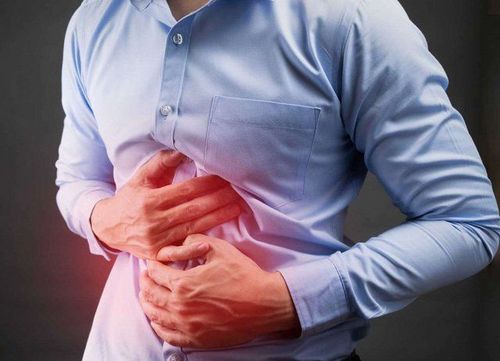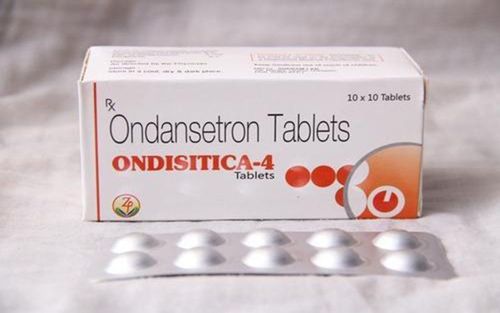This is an automatically translated article.
The article was written by doctors of Internal Medicine Oncology Department, Vinmec Times City International General Hospital.When a patient is diagnosed with cancer, a treatment plan is put in place. Doctors will sometimes recommend adjuvant treatment after primary treatment (surgery or radiation) has been completed. This is called adjuvant treatment to reduce the risk of the cancer coming back.
Different types of adjuvant treatment are used based on the type of cancer as well as the patient himself. This article will provide an overview of adjuvant treatment that everyone needs to know.
1. Types of cancer adjuvant treatment
There are many types of adjuvant treatment used today. The most commonly used cancer treatments are:Drug therapy Chemotherapy: Chemotherapy is a treatment that uses drugs to kill all cancer cells and healthy cells. Usually the drug is given through the patient's vein, but some drugs are also taken orally. Treatment will be in cycles to allow the body to recover between sessions. Hormone treatment: Hormone treatment blocks the production of certain hormones that affect cancer. Not all cancers are hormone sensitive, so doctors will first analyze each case to see if this adjuvant treatment is suitable. Radiation therapy: Radiation therapy kills cancer cells with a powerful beam of energy, similar to X-rays. It targets the original cancer area as well as the surrounding area. Radiation therapy can be done internally or externally. Targeted therapy: Targeted therapy works similarly to chemotherapy to kill cancer cells. The main and most important difference is that it only focuses on cancer cells instead of affecting healthy cells in the body. Immunotherapy: Immunotherapy is a new cancer treatment with promising results. Immunotherapy works to destroy cancer cells by the body's natural defenses.

Điều trị đích hoạt động tương tự như điều trị hóa trị để tiêu diệt các tế bào ung thư
2. What types of cancer are used adjuvant treatment?
Adjuvant therapy is most beneficial for advanced or metastatic cancer. These cancers may have tumors around the main tumor area, or the risk of having cancer cells elsewhere in the body.List of cancers that often receive adjuvant treatment:
Brain cancer ; Head and neck cancer ; Breast cancer ; Lung cancer ; Throat cancer ; Pancreatic Cancer ; Colorectal cancer; Prostate cancer ; Cervical cancer ; Endometrial cancer ; Ovarian Cancer ; Bladder cancer ; Testicular cancer .
3. Who is cancer adjuvant treatment for?
Adjuvant treatment does not apply to everyone because it requires the patient to have certain health conditions.Cancer treatment is very difficult, and not every patient with any condition can receive adjuvant treatment. For this reason, it's important to discuss options with your doctor.
Oncologists say the ideal candidate for adjuvant therapy would benefit from additional treatment, enough to overcome the limitations of potential side effects and inconvenience of treatment. .
For breast cancer for example, a good candidate would be a young breast cancer patient who has spread to a large number of axillary lymph nodes.
In this case surgery is done to remove the tumor in the breast and the lymph nodes in the armpit. The patient remains at high risk for the cancer to return both in the remaining lymph nodes/breasts and to spread to other organs such as the brain, lungs, or bones.
Therefore, after surgery, patients need adjuvant radiation therapy to the breast and lymph nodes (to reduce the risk of cancer returning in the breast and lymph nodes), in addition to adjuvant chemotherapy (to reducing the risk of cancer coming back in organs such as the brain, lungs or bones) is also essential. Chemotherapy may be accompanied by biologics if the patient is Her-2 receptor positive. Long-term anti-endocrine therapy will apply to patients who are fortunate to be hormone receptor positive.
But it's important that patients are healthy enough for adjuvant cancer treatment, says Dr. Hanna Luu, a breast cancer specialist and CEO of OncoGambit. "An ideal patient to consider adjuvant therapy is a patient at moderate to high risk for cancer recurrence, without any other serious illness such as heart or liver disease, and with active status. good," said Dr. Liu. "We determine the patient's functioning status using the ECOG classification system", which is classified as follows:
ECOG 0: Fully active, able to perform all activities; ECOG 1: Limited in activity heavy duty but can perform light housework, office work; ECOG 2: Capable of self-care but unable to perform any work; ECOG 3: Capable of taking care of self but limited , confined to bed or chair for more than 50 times a day; ECOG 4: Completely unable to care for oneself, confined to bed or chair.

Điều trị bổ trợ không áp dụng cho tất cả mọi người vì nó yêu cầu người bệnh cần có thể trạng sức khỏe nhất định
4. Side effects of cancer adjuvant treatment
Side effects with adjuvant therapy depend on the type of treatment given. Adjuvant treatment may even be enhanced depending on the patient's current health status and other treatments being received.Understanding the treatment will allow the patient to be well prepared. Chemotherapy can take several months to complete and leaves patients unable to take care of themselves at that time. Some preparations should be made so that the patient has extra support at home and during treatment. They may need to take time off from school or work.
Melissa Thompson, a recent breast cancer survivor and representative of the Patient and Family Advisory Committee at Memorial Sloan-Kettering Cancer Center, underwent chemotherapy after a mastectomy. abandoned both breasts just weeks after giving birth to her first child. She offers advice on how to prepare for adjuvant therapy for other patients.
" Chemotherapy is just one chapter in a big story. At the time, it felt like it would never end. As the effects of chemotherapy were cumulative, every day that passed felt difficult. physically and psychologically. Patients need to know that there is a light at the end of the tunnel and with it, life and optimism."
Patients should talk regularly with their cancer care team about how they are feeling during and after primary treatment. This helped the team ensure the correct classification of the cancer.
It is important for patients to ask about potential side effects and what to be prepared for. If adjuvant therapy is too much for the patient, the physician should be informed before taking the next steps in the treatment plan.
5. Is there an alternative to adjuvant cancer treatment?

Không có sự thay thế thực sự cho điều trị bổ trợ
Although there is no alternative to adjuvant treatment, a healthy lifestyle is recommended.
There are several things patients can do to increase their chances of survival. A healthy lifestyle based on good nutrition and regular exercise can help people with cancer live longer.
"There are currently no alternatives to adjuvant treatment, but additional treatment may be recommended for patients," explains Dr. "Although data are limited, a diet consisting of 80% fruits and vegetables and moderate exercise including 300 minutes of activity per week have been shown to improve survival in patients cancer, including those with advanced stages."
Meditation, yoga, and acupuncture can alleviate some of the side effects associated with treatment, so health care providers often encourage patients to participate in these activities.
Cancer patients can choose to be treated at Vinmec International General Hospital. Vinmec provides a full range of necessary medical care services for cancer patients including: chemotherapy, radiation therapy, surgical treatment, medical treatment, stem cell transplant...; At the same time, helping to control pain by physical therapy, peripheral nerve block, sympathetic block,...
In particular, Vinmec gathers a team of trained specialists in Oncology - radiation therapy. create methodical, professional and experienced; system of modern equipment, meeting international standards; Professional service quality, high efficiency in diagnosis and treatment.
Please dial HOTLINE for more information or register for an appointment HERE. Download MyVinmec app to make appointments faster and to manage your bookings easily.
Reference source: medical.new












